Ecosphere Resources
Please find a list of valuable resources below. Feel free to contact our representatives if you require help locating and downloading documents or forms that are not listed.
Documents
Links
Oceania
- Australian Biosecurity Import Conditions (BICON)
- Australia BMSB Seasonal Measures
- Exporting from Australia
- Importing into Australia
- Australian DFAT Sanctions
- New Zealand Imports Vehicles, Machinery & Parts
- New Zealand Ministry for Primary Industries
Europe
The Americas
- Bureau of Industry and Security List
- Importing and Exporting
- Sanctions Programs and Information
- Sectoral Sanctions Identifications
- Specially Designated Nationals And Blocked Persons List
- U.S. Customs and Border Protection
- Schedule B Search Engine
United Kingdom
Glossary
Airline Terminal Fee The airline terminal fee is an air cargo handling fee and refers to the cost of the transfer of cargo from the Airline Terminal to a bonded warehouse.
Airport of Discharge (AOD) The airport location where air freight is discharged.
Discharge means Arrival port/Destination port.
Airport of Loading (AOL) The airport location where air freight is loaded.
Air Waybill (AWB) An air waybill is a legally binding document issued by airlines as a receipt of goods. An air waybill is evidence of a contract of carriage between the shipper and airline that states all the terms and conditions of transportation. The air waybill details shipping instructions, product descriptions, and transportation charges.
Allotment A term used to describe space blocked by airlines on behalf of forwarders.
ATA Actual time of arrival.
ATD Actual time of departure.
Australian Business Number (ABN) A unique 11 digit number that identifies your business to government bodies and the business community.
Automated Export System (AES) AES is the system used to record all exports from the USA. It is used to identify the Gross Domestic Product (GDP) and is also used by US Customs and Border Protection (CBP) to ensure compliance.
Automated Manifest System (AMS) AMS is an electronic information transmission system used to identify potential security threats. It is operated by the U.S. Customs and Border Patrol.
Bill of Lading (BOL or B/L) A bill of lading is a binding contract that serves three main purposes:1. A receipt for the goods delivered to the transport provider for shipment.
2. Provides a definition or description of the goods.
3. Provides evidence of title to the relative goods, if “negotiable”.
Blank Sailing A blank sailing is a sailing that has been cancelled by the carrier or shipping line, this means that one port, or several, may be skipped.
Bobtail Fee A bobtail fee or drop off fee is a fee charged by a transport company to drop off a full container load (FCL) at a warehouse facility, then pick it up once unloaded.
Break bulk Break bulk cargo is general cargo and refers to goods that are loaded individually, i.e. are not containerized.
Bulk Cargo Bulk cargo is a term used to describe commodity cargo that is transported loosely and in large quantities. Oil, grain or coal are examples of bulk cargo.
Bunker Adjustment Factor (BAF) BAF is a surcharge charged by shipping carriers that represents the fuel component of sea freight. BAF fluctuates based on oil prices.
Cargo Automation (CAA) A fee charged for interfacing with the Australian Custom systems in order to provide advance electronic notice of arrivals.
Cargo Management Re-engineering (CMR) A processing fee charged for reporting cargo to Australian Customs.
Cartage Cartage refers to the transport of cargo by truck to and from a warehouse facility within a local area.
Chassis Fee A Chassis fee is a payment charged for transporting a container from an ocean port to a warehouse facility, or from the warehouse facility to the ocean port.
Clean Truck Fee The clean truck fee is an initiative designed to reduce air pollution. The fee is assessed by the Los Angeles and Long Beach ports as an element of the Clean Air Action Plan.
U.S Customs Border and Protection (CBP) The CBP is the largest law enforcement agency of the United States Department of Homeland Security and the country’s border control organisation.
Consignee A consignee is a person or place (individual or organisation) to which ownership will transfer once the cargo is released.
Container Freight Station (CFS) A warehouse facility that specialises in the consolidation and deconsolidation of cargo.
Customs Compile Fee Also known as Import Processing Charges (IPCs) are cost recovery charges from the Australian Government Border Security department. The Customs compile fee is charged on each import into Australia and the amount charged is dependant on consignment value. The difference in pricing between air and sea and post pathways was removed 1st Jan 2016.
Dehire The container has been emptied and returned to the container yard.
Delivered Duty Paid (DDP) (named destination) The seller is responsible for delivering the goods to the named place in the country of the buyer. The seller must also pay all costs related to the transport of the goods to their destination, including import duties and taxes. The seller is not responsible for unloading. This term places maximum obligations on the seller and minimum obligations on the buyer.
Demurrage The fee payable to the owner of a chartered ship for failure to pick up your container before the Last Free Day.
Detention Detention refers to the fee charged for the extra days the container is away from the port.
Drayage The transportation of a full container via truck from a port to a local warehouse facility.
Duty Duty is an indirect tax charged by the government. The amount payable depends on the value of the imported or exported product.
Duty Drawback Duty drawback is a refund of Customs duty paid on imported goods.
Embargo An official ban on trade or other commercial activity with a country.
Emergency Bunker Surcharge (EBS) A late fee applied when actual market prices are higher than was anticipated by a carrier.
Employer Identification Number (EIN) A unique nine digit number that identifies your business to the Inland Revenue Service (IRS).
Empty Container Park Fee (ECP-Fee) A fee charged by the container terminal to the transport company for the return of the empty container.
Export Control Classification Number (ECCN) A five-character alpha-numeric identification key used to identify items that are subject to export control
Express Bill of Lading A type of bill of lading that does not require the cargo to be released. If the importer has paid for their goods in full before shipping or is in credit with their supplier, an Express Bill of Lading will be used.
Ex Works (EXW) (named place of delivery) The Ex Works term is often used when making an initial quote for the sale of goods without any costs included. EXW means that a seller has the goods ready for collection at his premises (works, factory, warehouse, plant) on the agreed date. The seller makes the goods available at his/her premises. The buyer is responsible for uploading. The buyer pays all transportation costs and also bears the risks for transporting the goods to their final destination. It is not the responsibility of the seller to load the goods onto collecting vehicles or to clear them for export. In the circumstance that the seller loads the goods, he does so at the buyer’s risk and cost. If parties wish the seller to be responsible for the loading of the goods on departure and to bear the risk and all costs of such loading, this must be clearly documented in the contract of sale.
Federal Maritime Commission (FMC) The U.S agency responsible for the regulation of sea transportation.
Foreign Trade Zone (FTZ) An economic trade zone where merchandise is not subject to duties or other taxes.
Forty-Foot Equivalent Unit (FEU) A unit of shipment volume.
Free On Board (FOB) An acronym for “free on board” when used in a sales contract. The seller agrees to deliver merchandise, free of all transportation expense, to the place specified by the contract. After delivery is complete, the title to all the goods and the risk of damage become the buyers.
Free Trade Agreement (FTA) FTA’s are multinational agreements that reduce or eliminate barriers and increase trade in goods and services between cooperating states.
Fuel Surcharge (FSC) An FSC is an additional charge that is represented by a percentage of the total delivery amount. Fuel Surcharges are chargeable on top of Delivery rates, Via Yard rate, Overweight Heavy Surcharge and Waiting Time fees. A fuel Surcharge is sometimes applicable in addition to air freight rates.
Full Container Load (FCL) A shipment whereby cargo occupies a whole container, of any size.
General Rate Increase (GRI) A general rate increase applied to sea freight rates.
Harbour Maintenance Fee (HMF) The harbour maintenance fee is assessed by U.S Customs for goods imported via sea through U.S ports. The HMF is charged at 0.125% of the cargo value and should be declared clearly on the commercial invoice.
HS/HTS Codes HS/HTS are codes used to classify goods for Customs purposes.
Import Quota Restrictions imposed by a country on the value or volume of goods brought into the country.
Import Security Filing (ISF) As required by the U.S Customs and Border Control agency, an ISF identifies 12 specific details about an import shipment.
Import Terminal Fee Airline handling costs.
Incoterms Incoterms or International Commercial terms are a series of pre-defined commercial terms published by the International Chamber of Commerce (ICC). These terms are widely used in international commercial transactions or procurement processes. The three-letter trade terms are primarily intended to clearly communicate the tasks, costs, and risks associated with the transportation and delivery of goods.
Less Than Container Load (LCL) An LCL is a consolidation service used for export and import sea freight. Shippers share space and costs with other shippers.
Less Than Truckload (LTL) A consolidation service whereby smaller shipments do not fill an entire truck and shippers share space and transport costs to fill the truck.
Lift On/Lift Off The Lift On/Lift Off fee is charged by the carrier for lifting the FCL from the truck upon receipt from the depot or container yard. The fee is also applicable when import FCL’s are lifted at the sea carriers facility onto the importers/forwarders trucking.
Live Unload The transport driver waits while the client unpacks their goods from the container.
Merchandise Processing Fee (MPF) The U.S Customs MPF is based on the value of the merchandise being imported and does not include duty, freight and insurance charges. The fee is 0.3464% of the cargo value as per the commercial invoice.
Non-Vessel Operating Common Carrier (NVOCC) NVOCC operators do not own ships but instead lease space from carriers at reduced rates. Space is then sold to their customers at a cheaper rate than normal. NVOCC’s consolidate smaller shipments into a container load that ships under one bill of lading.
Pier Pass Fee The Pier Pass Fee or Traffic Mitigation Fee (TMF) is a fee charged when shipments are unloaded at the Port of Los Angeles/Long Beach during peak hours.
Port of Discharge (POD) POD represents the Port of Discharge when referencing sea freight. Similar to Airport of Discharge which is used for air freight. Discharge means the arrival port/destination port.
Port of Loading (POL) POL represents the Port of Loading when referencing sea freight. Similar to Airport of Loading which is used for air freight.
Shipping Documents Documents accompanying a shipment as it moves through the various stages of the shipping process including, bills of lading (PDF), packing slips, Customs paperwork, manifests and shipment bills.
Subsidy Financial assistance for producers or exporters provided by the government.
Tailgate Inspection A physical inspection of a container undertaken by a DAFF Biosecurity officer to visually verify that the cargo, the contents of a container, or the outside of a container, are free from quarantine risk material.
Tariff Duty or tax levied at the border on goods moving from one Customs territory to another.
Twenty-foot Equivalent Unit (TEU) A measurement of shipping volume.
Timeslot Booking Fee A booking fee charged by the port to the transport company for the allocation of a timeslot for collection of the container from the wharf.
VAT Number The VAT number is an identification number required when importing into the EU.
Waybill A “Waybill” is a non-negotiable document prepared by or on behalf of the carrier at the origin. The document shows details and instructions regarding the shipment such as the port of origin, destination, route, consignor, consignee, shipment description and the amount charged for the transportation service.








